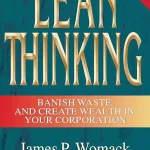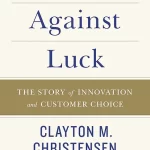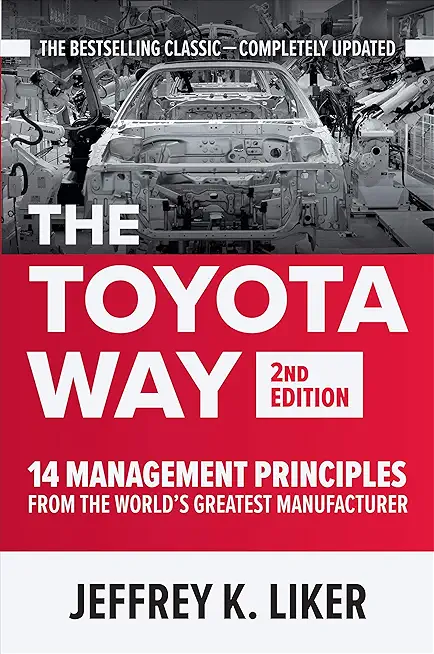
Lean Thinking – James P. Womack & Daniel T. Jones

Competing Against Luck – Clayton M. Christensen, Taddy Hall, Karen Dillon & David Duncan
Title: The Toyota Way
Author: Jeffrey K. Liker
Main Idea
The Toyota Way reveals the 14 management principles behind Toyota’s success, focusing on long-term thinking, continuous improvement, and respect for people. It demonstrates how these principles create a culture of operational excellence and innovation.
Key Points
-
Long-Term Philosophy:
- Toyota prioritizes long-term success over short-term financial goals.
- Decisions are made with a focus on what is best for the company and society in the long run.
-
The Right Process Leads to the Right Results:
- Emphasizes creating standardized processes that promote continuous flow and eliminate waste.
- Uses “Just-in-Time” production for efficiency and reducing excess inventory.
-
Add Value by Developing People:
- Toyota invests heavily in training and developing employees at all levels.
- Empowered workers are encouraged to identify problems and suggest improvements.
-
Continuous Improvement (Kaizen):
- Constantly seeking ways to improve processes, quality, and productivity.
- Encourages a culture where every employee takes responsibility for quality.
-
Problem Solving and Root Cause Analysis:
- Uses the “5 Whys” technique to identify source of issues rather than just fixing symptoms.
- Ensures problems are addressed permanently to avoid recurrence.
-
Respect for People and Teamwork:
- Builds mutual trust between management and employees.
- Values teamwork and collective problem solving as a source of innovation.
-
Leadership Commitment:
- Leaders must embody and teach the Toyota principles.
- Engage deeply with operations and support continuous learning and development.
Review
- Jeffrey Liker’s book provides a comprehensive look at Toyota’s unique management philosophy that has led to its global reputation for quality and efficiency. The Toyota Way is much more than a set of rules — it is a mindset of continuous improvement and respect for people that can be adapted beyond manufacturing.
- The detailed explanation of each principle combined with real-world examples gives clear guidance for any organization seeking operational excellence.
Recommendation
- This book is essential reading for managers, business leaders, and professionals interested in lean manufacturing, quality management, or building a strong organizational culture.

